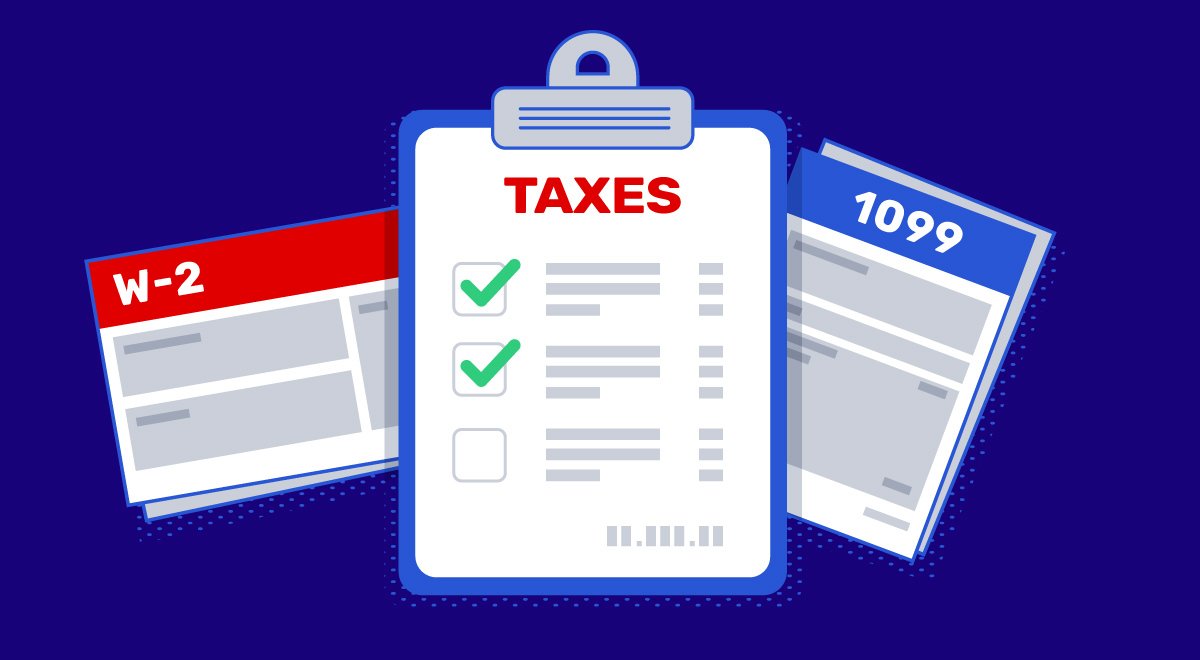Before you know it, April 15th is going to roll around, and your taxes will be due. If this is the year that you planned to get organized and maybe even a little bit early while filing your taxes, one of the best tools you can have is a tax checklist. A good tax checklist can keep you organized and track to get your taxes filed on time.
Additionally, by staying organized, you may find opportunities to save money on your Federal and state income taxes that you might have otherwise overlooked. Therefore, if getting organized for tax season is one of your New Year’s resolutions, you’re in luck. Here’s a great tax checklist that will help you approach the April 15 filing deadline with confidence.
Make a Plan: Jan-Feb
The first to-do item on your tax checklist is to make a plan for how you’ll prepare your taxes this year. Here are some of the key things to do when it comes to making your tax filing plan this year.
1. Pick a date on the calendar for when you plan to file your return. This will help you determine everything you have to do before seeing your accountant (or preparing your taxes yourself).
2. Select a time when you’ll organize all your tax paperwork, and mark those days on your calendar.
3. Start a file somewhere secure in your house where you can store important tax documents that typically start arriving in the mail around this time, such as your W2 or 1099s.
4. Start a new notebook or spreadsheet to capture all the tasks and dates you’ve noted for preparing your taxes this year. You can refer to this document as you get into full tax prep mode to keep you on track.
Find a Tax Specialist or Prepare to File Yourself (No later than mid-February)
One key item that belongs on your tax checklist is figuring out exactly how you’re going to file your taxes. While you can wait longer than mid-February to do this; the longer you wait, the less time your tax preparation specialist will have to fit you into his or her schedule. If you have a complicated return, you want your accountant to have as much time as possible to prepare it. Here are some things you’ll need to mark off your checklist when it comes to your filing plan.
1. If you already have an accountant or tax preparation specialist, reach out to him or her as soon as you can. Try to schedule a time when you think it’ll be feasible for you to have all your paperwork together.
2. If you don’t have someone to assist you with your taxes right now, or you want to find a new tax preparation specialist, you should start looking as soon as possible. Try to find someone established and highly recommended and reach out to that person as soon as possible to determine what you’ll need to file your taxes.
3. Finally, if you’re planning to do your taxes yourself, make sure you have the latest software or other information you need, and that you’re confident you have the latest information on hand to optimize your tax returns.
Get Your Paperwork Together: Jan-March
Once you have settled on a tax preparation specialist, the next item on your tax checklist should be gathering all the necessary paperwork to file your return. You can start this process in March when W2s start to roll in; however, it will often take you until at least March to get all the documents you need. If you’ve waited to the last minute to do this, no worries; just start getting your act together now! Here’s some paperwork and information you’ll need for filing your taxes this year.
1. You’ll need your social security number, along with your spouse’s if you’re filing jointly. If you’re claiming your minor children on your return, you’ll need their social security numbers as well.
2. If you’ve switched tax preparation specialists, it may be a good idea to provide the new team with your tax return from last year, as it can serve as a baseline for filing this year.
3. Ensure you furnish copies of any official paperwork you have indicating income, such as W2s or 1099s.
4. You’ll also need to have any record of state or local taxes you’ve paid, such as property taxes on your home or vehicle.
5. Receipts for deductible expenses will be important; besides the receipts themselves, a list or spreadsheet that notes all of them can be helpful.
6. Gather all your 1098 forms indicating mortgage interest, forms showing any tax-deferred contributions you made to retirement accounts, and any paperwork indicating tuition you paid.
7. Since most people use direct deposit for their tax refunds, you’ll also need your bank account and routing numbers.
If you have any questions about what additional paperwork you may need to file your taxes, you should talk to your tax preparation specialist.
Make a Note of Changes: March (or Just Before Filing)
Once you have all the paperwork on hand that you’ll need, make a note of any changes on your tax checklist that have occurred since you filed the previous year’s income tax return. Noting any changes will help your accountant or tax return specialist prepare your tax return more effectively, especially if he or she is using the previous year’s return as a baseline. Here are some of the possible changes to your tax situation that you may want to include.
1. Any changes to your filing status (i.e. if you’re going to file as an individual instead of as a married couple filing jointly).
2. The addition of a child or noting that a child previously claimed will be too old to be included in this year’s return.
3. The purchase or sale of a home, and any interest payments you’ve added this year that you didn’t itemize in your last return.
4. If you’ve started making withdrawals from your retirement account, you’ll want to note that as well.
5. Any significant changes to expenses that you’ve habitually claimed on past returns.
Overall, if you have the opportunity, try to check in with your tax preparation ahead of time to help you identify any key changes in your tax situation that are worth noting for this year’s return.
Make a List and Check It Twice
Preparing your taxes this year probably won’t be fun, but it doesn’t have to be stressful. Just follow this checklist and you’ll have peace of mind, as you’ll be ready to mail in your tax return with confidence.





